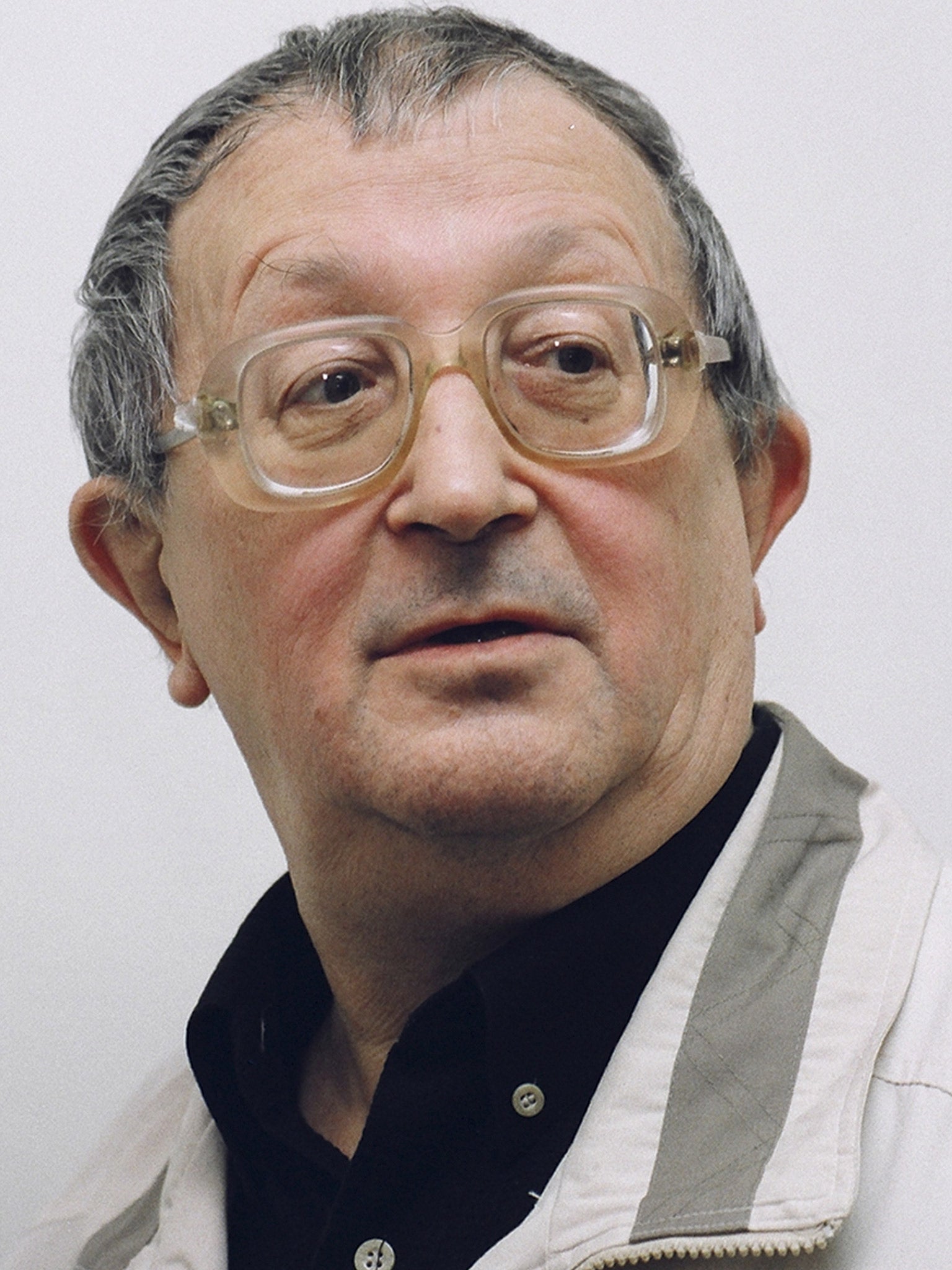Boris Strugatsky: Acclaimed writer of science fiction

Your support helps us to tell the story
From reproductive rights to climate change to Big Tech, The Independent is on the ground when the story is developing. Whether it's investigating the financials of Elon Musk's pro-Trump PAC or producing our latest documentary, 'The A Word', which shines a light on the American women fighting for reproductive rights, we know how important it is to parse out the facts from the messaging.
At such a critical moment in US history, we need reporters on the ground. Your donation allows us to keep sending journalists to speak to both sides of the story.
The Independent is trusted by Americans across the entire political spectrum. And unlike many other quality news outlets, we choose not to lock Americans out of our reporting and analysis with paywalls. We believe quality journalism should be available to everyone, paid for by those who can afford it.
Your support makes all the difference.Boris Strugatsky and his older brother Arkady, who died in 1991, were the Soviet Union's best-known science-fiction writers and, from the early 1970s, gained an international reputation as their work was regularly translated into English. Their Noon Universe is the setting for 10 novels and various offshoot works, written over a quarter of a century, while other stories were adapted for the cinema, most notably Tarkovsky's Stalker.
Boris was eight years younger than Arkady but when the family was split up by the siege of Leningrad he and his mother stayed while Arkady and their father, an author and journalist, left. In 1950 Boris entered Leningrad State University, transferring from physics to astronomy. Five years later he graduated and spent the next 11 years as an astronomer and computer engineer. Meanwhile Arkady had become an editor and translator. In 1958 they combined their talents to begin writing science fiction, making the break into full-time writing in 1964.
In the excitement of post-revolutionary technophilia sci-fi was a popular Soviet genre but it fell away under Stalin, perhaps seen as escapist or dangerously Aesopian. After Stalin's death, inspired by palaeontologist-turned-author Ivan Yefremov, the brothers were instrumental in revivifying it. Following a few technology-driven "hard sci-fi" stories they began to use the genre to explore intractable social and moral questions.
Their major work is the futuristic Noon Universe series, running from Noon: 22nd Century (1962) to The Time Wanderers (1985). Not planned as a series, it developed as the brothers returned to settings and characters. The utopianism seems to mark the victory of communism, but the apparent perfection is the result of easily available resources and an unSoviet lack of imperialistic desires, while a World Council formed of great intellectuals works to bring civilisations into line.
Like much sci-fi there were often political undercurrents: the allegorical elements of Prisoners of Power (1969) were too clear and publication was only allowed when they changed the Russian names to foreign-sounding ones.
The series' loose interconnectivity allowed the brothers to rove over time and space (though often in worlds that reflect some period or aspect of life on earth) and tell the stories from various characters' perspectives. They decided to draw it to a close in the late 1980s, but Arkady's death left the final instalment incomplete. Boris took the pen-name S Vititsky and wrote two more books, while endorsing Noon-related books by other authors.
Of the various film adaptations, the most famous is Stalker (1979), based on Roadside Picnic (1971), though friction with Tarkovsky led Boris briefly to withdraw from writing the script. Though it is set in Canada in the near-future, Western critics sometimes over-emphasised the allegory: the "zone" was a popular nickname for the Gulag. It led to the director and the writers being seen only as dissidents, with the more philosophical aspects of their work being downplayed.
The brothers' work also appealed to Tarkovsky's artistic descendants: Sokurov's Days of Eclipse (1988) about a doctor posted to Turkmenia is the best-known of several film versions of One Billion Years Before the End of the World (1978, aka Definitely Maybe). In 2006 Konstantin Lopushansky, took on the dystopian The Ugly Swans, written in 1967, but banned for 20 years, while Boris co-wrote the post-apocalyptic Letters from a Dead Man (1986). Alexei Gherman has spent over a decade on The History of the Arkanor Massacre, a version of Hard to Be a God (1964), whose hero has to decide whether to topple the despotic leader of the feudal planet he is visiting.
Some Russians were outraged at the apparent similarities between James Cameron's Avatar and Noon's fifth instalment, Disquiet (1965). Both are set on planets called Pandora inhabited by a blue-skinned forest-living race.
When Arkady was alive the brothers made few political pronouncements but Boris later criticised Putin's repressions, discussed the murder of Anna Politkovskaya and signed an open letter of protest at the treatment of Khodorovsky and Pussy Riot. Though doubtless unwittingly, Putin's posthumous tribute echoed Stalin's acclamation of Mayakovsky as "the best, the most talented." Boris recently reinforced the brothers' bleak outlook: "Unfortunately I am a pessimist: I don't believe anything good comes from a large mass of people. As a rule, large numbers of people are bad."
Boris Natanovich Strugatsky, author: born Leningrad 14 August 1933; married Adeleida (two sons); died St Petersburg 19 November 2012.
Join our commenting forum
Join thought-provoking conversations, follow other Independent readers and see their replies
Comments